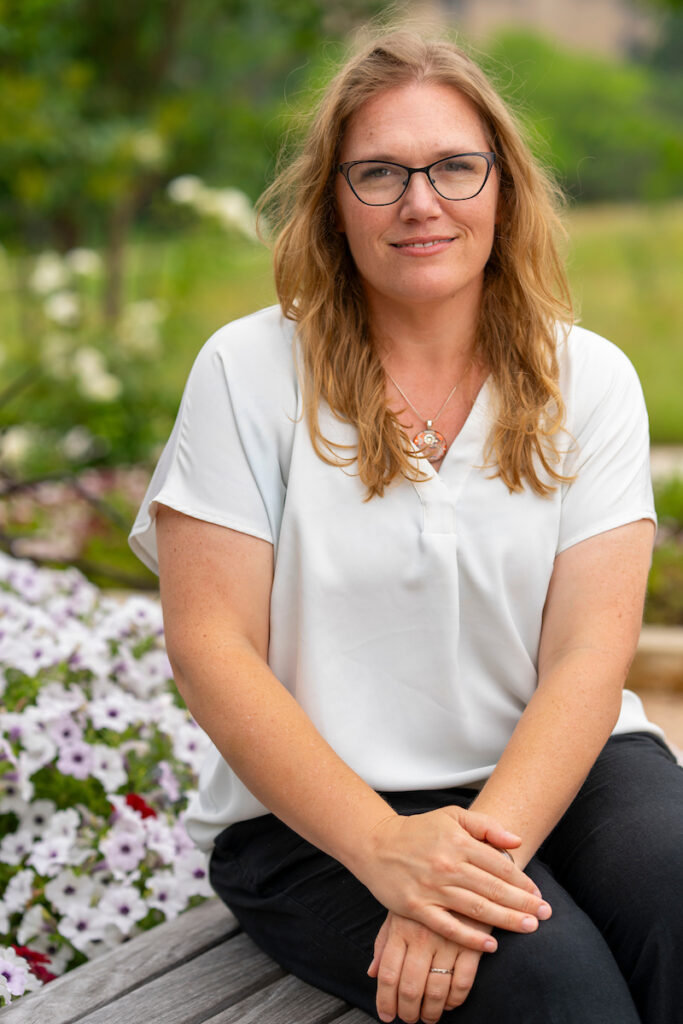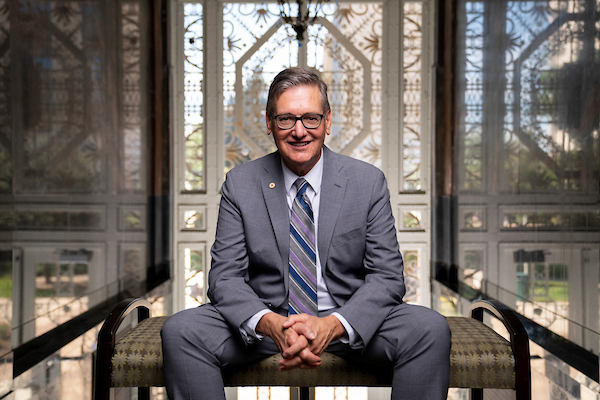Dara Wald honored as Andrew Carnegie Fellow
Texas A&M College of Agriculture and Life Sciences professor among 2024 honorees
Dara Wald, Ph.D., has been named to the 2024 class of the Andrew Carnegie Fellows Program by the Carnegie Corporation of New York.

Wald is a tenured Texas A&M College of Agriculture and Life Sciences associate professor in the Department of Agricultural Leadership, Education and Communications, Bryan-College Station. She is also a research fellow at the Institute for Science, Technology and Public Policy.
“This is a momentous honor for Dr. Wald,” said Texas A&M University provost and executive vice president Alan Sams, Ph.D. “The Carnegie Fellowship is one of the most prestigious fellowships given to scholars in the humanities and social sciences, and we are very proud of her work. Her research clearly demonstrates a relevant and trailblazing area of study with profound real-world implications. It is a remarkable and well-deserved honor.”
Wald was one of 28 distinguished scholars selected from over 360 nominations for the honor. According to the Carnegie Corporation, each winner will receive up to $200,000 for research that seeks to understand how and why society has become polarized and how it can strengthen the forces of cohesion to fortify democracy.
Wald was sitting at her office desk on a Friday when she got the email.
“I was completely shocked,” she said. “For academics, this time of the year is such an intense period. The semester is wrapping up, and everybody’s tired. To get this news, particularly at this time of year, is thrilling. I am very excited about the possibilities this creates for my research program.”
Wald’s work demonstrates the value and need for interdisciplinary scholarship to address polarized perspectives of agricultural and environmental issues.
“The importance of Dr. Wald’s work cannot be overstated,” said Jeffrey W. Savell, Ph.D., vice chancellor and dean for Agriculture and Life Sciences. “Her ongoing research engages in public conversations throughout agricultural, life and environmental sciences, opening key dialogue about public perceptions of complex science issues.”
Award will further Wald’s research
The Carnegie Fellowship award will allow Wald to dig deeper into questions she and her team have been asking as part of her National Science Foundation funded Faculty Early Career Development Program, CAREER, award on public perceptions of science and place-based conservation. Wald’s research highlights critical areas such as trust, credibility and collaboration in natural resource contexts.
“Dr. Wald’s work asks vital questions about how scientists can build trust and emphasize their commitment to the public good,” said Matt Baker, Ph.D., head of the Department of Agricultural Leadership, Education and Communications, Bryan-College Station. “These questions are critical for our understanding of public perceptions of science and policy.”
Wald’s research aims to maximize the benefits of scientific discovery for people and the environment. She does this by examining the causes and consequences of conflict and collaboration over natural resources and identifying effective communication strategies. The research also examines how public perceptions of science shape attitudes toward environmental and agricultural policies and programs.
“My research focuses on water, wildlife, land and energy,” she said. “These are fundamental things we all need for life. Science can help us protect our communities from floods, improve agricultural production and guard us from emerging health issues.”
Wald said if a community is not getting the information, however, or the messages do not reach or appeal to that community, then that science stays in an ivory tower.
“In general, people pay more attention to information from a credible source they have a relationship with,” she said. “But credibility means different things to different people. Understanding what credibility means to different audiences will help bridge the divide.”
In addition to diving deeper into her current research, gathered from interviews with landowners, land managers and producers in rural areas, Wald said the award will enable her to expand this work to look at polarization about scientific credibility and develop a book proposal about those research results.
“There’s a need to understand ways to find common ground and move together as a force,” she said.
Addressing political polarization
The Andrew Carnegie Fellows Program was established in 2015 to support humanities and social sciences research. As of last year, it had 243 fellowships, totaling an investment of $48 million. Last year marked the start of a new program phase with the exclusive theme of political polarization in the U.S.
“The fragility of American democracy has been exposed in recent years to a degree that is quite frightening,” said Dame Louise Richardson, Carnegie Corporation of New York president. “The driving force appears to be the increasing polarization of American politics and, by extension, American society. We would like to understand this polarization, what caused it, what perpetuates it, and above all, how it might be mitigated, or even reversed, by strengthening the forces of cohesion in our society.”
Through the research of the Andrew Carnegie fellows, the corporation seeks to raise awareness of political polarization in the philanthropic sector, guide public policy and help inform the foundation’s grantmaking in democracy, education, and international peace and security.





